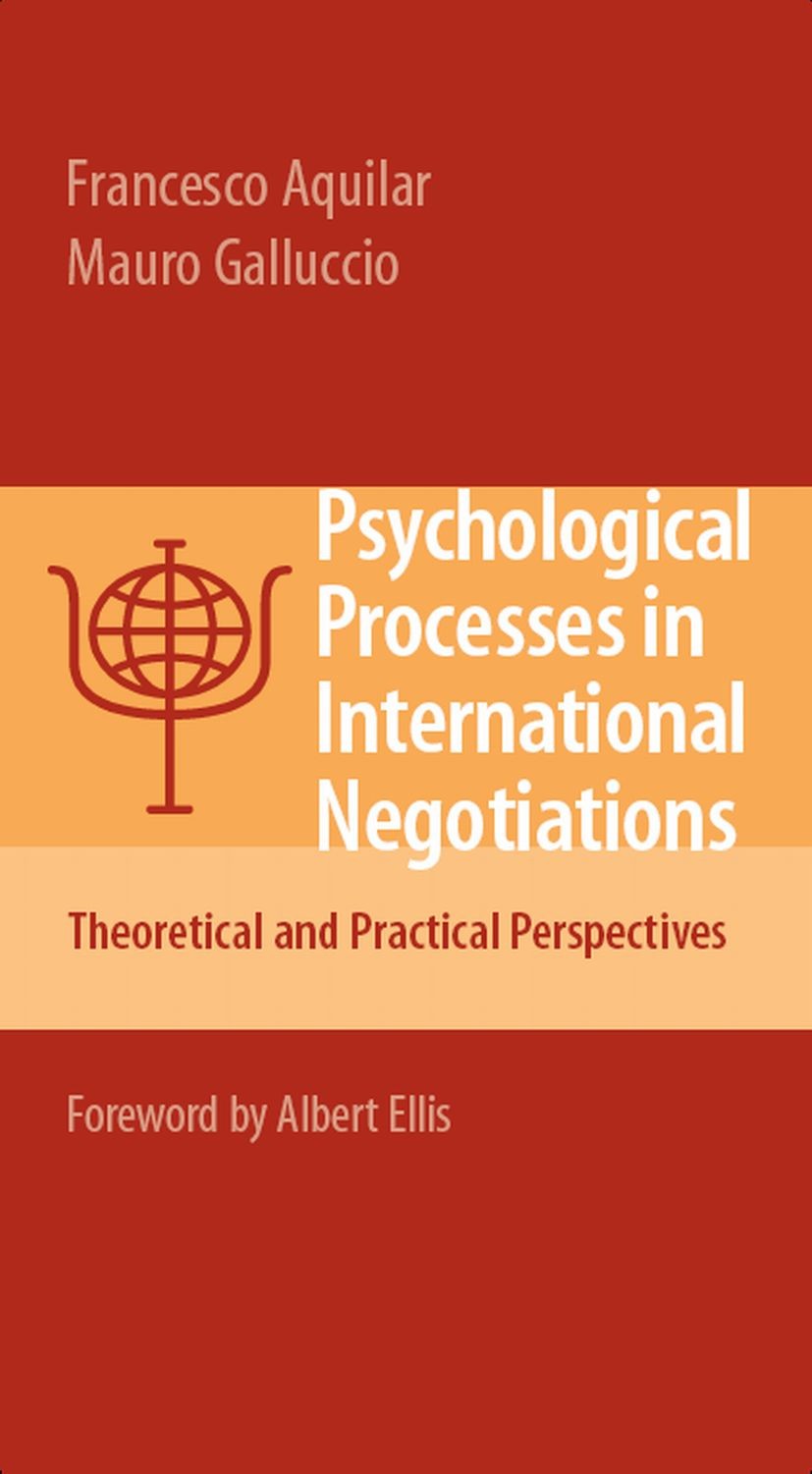| 书目名称 | Psychological Processes in International Negotiations | | 副标题 | Theoretical and Prac | | 编辑 | Francesco Aquilar,Mauro Galluccio | | 视频video | http://file.papertrans.cn/763/762916/762916.mp4 | | 概述 | Authors are highly respected international experts in the field.Authors bring together the disciplines of psychology and international negotiation.Emphasizes the value of human psychology in the proce | | 图书封面 |  | | 描述 | .Global interests are at stake at the treaty table. But personalities on either side can create difficulties apart from the issues. A skilled negotiator needs to be able to defuse the tensions and misperceptions that can derail progress. There are few sources that combine the psychological knowledge with the skills of persuasion...Now, a unique collaboration between experts in cognitive psychotherapy and political science, Psychological Processes in International Negotiations provides such a resource. Drawing on a wide range of theory and data, from neuroscientific findings and historical events to Albert Ellis’ rational-emotive model of behavior, the book explains how the negotiation process works, under both adverse and optimum conditions. The authors identify psychological elements (in participants and in negotiators themselves) that have the greatest effect on negotiation outcomes, including group identity and groupthink, egocentrism, emotional awareness and competence, and the various interpersonal and communication skills, as well as steps readers can take to improve their performance. With this book, negotiators have the tools to come to clear judgments and creative, non-agg | | 出版日期 | Book 2008 | | 关键词 | Europe; Persuasion; cognitive processes; communication; negotiators; peace psychology; war prevention | | 版次 | 1 | | doi | https://doi.org/10.1007/978-0-387-71380-9 | | isbn_softcover | 978-1-4419-2439-1 | | isbn_ebook | 978-0-387-71380-9 | | copyright | Springer-Verlag New York 2008 |
The information of publication is updating

|
|
 |Archiver|手机版|小黑屋|
派博传思国际
( 京公网安备110108008328)
GMT+8, 2026-2-9 22:47
|Archiver|手机版|小黑屋|
派博传思国际
( 京公网安备110108008328)
GMT+8, 2026-2-9 22:47


